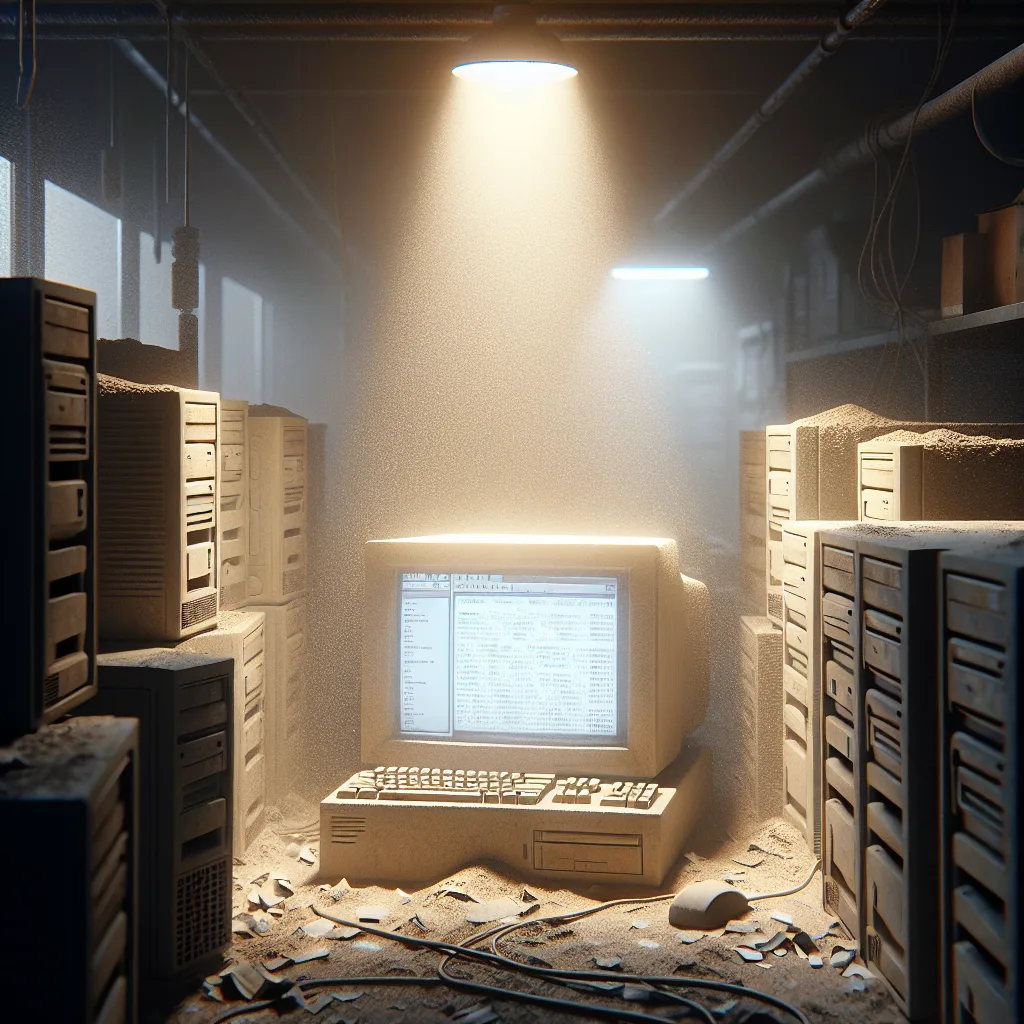I’ve got a pile of old electronics in my closet. I think we all do. A dusty laptop from college, a couple of old phones, and a desktop PC tower that’s probably heavier than I am. The responsible thing to do is recycle them, right? Just drop them off and let the pros handle it.
But I recently heard a story that made me think twice about how simple that really is.
It’s a story about what can happen when the people handling our old tech don’t do their job right. Someone I know who tinkers with old hardware bought a big lot of used PCs from a recycler. These weren’t from individuals; they were from businesses and organizations that had paid to have their old equipment professionally and securely decommissioned.
Or so they thought.
A Recycler’s Scary Mistake
When he got the computers back to his workshop, he made a pretty shocking discovery. He booted one up, and it went straight to a Windows login screen. No password. He clicked on the user profile, and he was in.
The hard drive was completely untouched.
He found documents from a law firm. Sensitive client information, case details, private correspondence. All just sitting there. On another machine, he found the entire student database for a local school district. Names, grades, contact information, disciplinary records. Everything.
But the most alarming find was a computer from a government defense contractor. It had project files, schematics, and internal communications on it. The kind of data that absolutely, under no circumstances, should ever leave a secure environment.
The recycler, who was supposed to be wiping these drives clean as part of their service, had simply… not. They just unplugged them, stacked them on a pallet, and sold them.
Why This Is a Huge Deal
This isn’t just a simple mistake. It’s a massive privacy and security disaster waiting to happen. For you, for me, for anyone.
Think about what’s on your old computer.
* Tax returns with your social security number.
* Saved passwords in your browser for banking and email.
* Personal photos and private messages.
* Work documents or client files.
We assume that when we “delete” a file, it’s gone. But it’s not. Deleting a file just tells the computer that the space it occupies is available to be used later. The actual data often stays on the drive until it’s overwritten by something new. A factory reset can help, but even that isn’t always foolproof.
A professional recycler is supposed to use special software to write over every single part of the drive, making the original data impossible to recover. The fact that this one didn’t is terrifying.
How to Protect Yourself (It’s Easier Than You Think)
The good news is, you don’t have to be a security expert to protect yourself. Before you sell, donate, or recycle an old computer, you need to wipe the hard drive clean.
Here’s how.
For most people, use the built-in tools:
* On Windows 10 or 11: Go to Settings > Update & Security > Recovery. Under “Reset this PC,” click “Get started.” Critically, you need to choose the “Remove everything” option, and then look for a “Change settings” link where you can select “Clean data” or “Remove files and clean the drive.” This is the important step. It will take a few hours, but it overwrites your data, making it much, much harder to recover.
* On macOS: The process is a bit different depending on your Mac’s age, but it involves booting into Recovery Mode and using Disk Utility to erase the drive. The key is to choose the “Security Options” and move the slider to a more secure setting, which will overwrite the data.
For the truly paranoid (or if you have very sensitive data):
If you want to be absolutely certain, there’s always the physical option. Open up the computer case, remove the hard drive, and destroy it. I’m not kidding. A few well-placed strikes with a hammer or drilling a few holes straight through it will do the trick. It’s extreme, but it’s also 100% effective.
The Bottom Line
That pile of electronics in the closet isn’t just junk; it’s an archive of your life. And you wouldn’t just hand your diary over to a stranger.
So before you let go of your old tech, take a moment. Wipe it clean. It’s a simple step that ensures your private information stays that way. Don’t trust someone else to do it for you, because as this story shows, sometimes they just don’t care.
